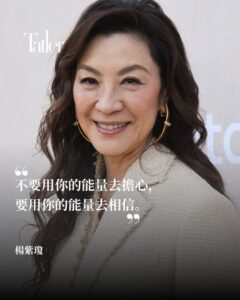《自律養生實踐家之旅366》 危機(生病)與轉機(不生病),一線之隔

生病與不生病之間,如果真有一個開關,那會是什麼?
你會用什麼態度面對這個問題?好奇?謙卑?願意相信?還是聽聽就好?
這個開關,是連結到飲食,還是連結到情緒?我曾提出「快樂與健康二選一」的難題,核心就在這五十步與一百步的取捨。
暫不談睡眠,只為讓問題單純化。嚴格說來,睡眠完全足以成為獨立的生病因子,而飲食與情緒也確實能干擾睡眠。
生病與否,不只是生理問題,也是價值觀問題。重視吃的人,往往得承擔吃的後果;斤斤計較的人,常要付出情緒代價;而輕忽睡眠,早已滲透到現代人價值系統的深處。
我懇請你先問自己:如果一定要找出答案,情緒應不應該被放在最重要的位置?我觀察到,人最大的問題不是吃太多,而是對立太多。
我總覺得自己挖得太深,可是現實是,因情緒困住而病重的人,比例驚人。
我的內在聲音不斷提醒我遠離情緒化的人;生命經驗也告訴我要遠離錙銖必較的人。這不只是頻率不合,更會把彼此的磁場拉向低處。
要引導這類人格特質的人改變,比引導愛吃的人戒口還難。生命早期的故事已經把性格鎖死,而這種「定格」正是導向重病的特質。
我常覺得自己站在懸崖邊看著他們,他們改變不了,我自己也沒退路。最後,我只能掉頭走人,承認這是一場是滑鐵盧。
但令人振奮的是,天無絕人之路,心性的改變,居然可以透過斷食被引動。我在那些願意與身體和解的人身上,看見了曙光。
這也是為什麼我不斷強調「謙卑受教」的重要:相信,才有可能放鬆;放鬆,才有可能康復。
若必須在「飲食」與「情緒」之間二選一,我把答案押在情緒。然而,正是在情緒最難以化解的地方,我意外發現了另一個新大陸:斷食。
是情緒,還是斷食?多數人會把答案選在情緒,因為認識情緒的人遠多於認識斷食的人,但這不是少數服從多數的題目。
我再次借用麗莎.藍金醫師的話:「當你快樂、放鬆、無憂無慮時,身體就能完成驚人、甚至可說是神蹟的自我修復大業。」如果你願意深入認識這位醫師,並百分之百相信她的觀點,你就會從這句話裡找到答案。
記得《哈佛醫師帶你認識自癒力(Cured)》裡的故事嗎?那位前往夏威夷退休的胰臟癌患者,什麼治療都沒做,只做了一件事:活在藍金醫師這句話的狀態裡。
所以,「生病與不生病之間的開關」用一個字就能詮釋:鬆。如果真有那個開關,另一頭就是緊。
此刻,請感覺一下自己全身,是鬆,還是緊?答案,你自己最清楚。
藍金醫師也提醒我們:「當生活其他面向不健康時,壓力反應就會引爆,身體就會發出細微的訊號。若能聽見這個訊號、探究它想傳達的事實,並改變自己,誘發放鬆反應,那些微弱訊號就不會惡化成嚴重疾病。」
看過無數癌症故事後,我的結論只有一個:緊,最後變成「卡」,身體處處淤塞。
大多數人聽到斷食,第一反應是「餓肚子」,那是多麼巨大的誤解。斷食的本質不只是消化道休息,而是全身的廢物清運;更令人驚訝的是,那些早已卡在身上的負面情緒,也會在深度斷食中被身體移除。
癌症可怕嗎?現實層面是的,但它同時是身體的最後通牒,也是喚醒覺悟的最後防線。
念頭若能隨境轉換,平靜的接收身體的警告,危機就會轉為轉機,生病也能轉為不生病。
當你相信轉角有希望,就不再恐懼,也不再擔憂。危機化為轉機,正是身體最鮮明的意圖。
相信,才會放鬆;放鬆,才有改變。
當你覺得難以卸下攜帶情緒和執著的厚重外衣,我的建議是學習斷食,把康復的希望交回給身體,把不生病的主權交還給身體。
(不要用你的能量去擔心,用你的能量去相信。)
Crisis (Illness) and Turning Point (Health): A Fine Line
If there were truly a switch between being sick and not being sick, what would it be?
And what attitude would you take toward this question? Curiosity? Humility? A willingness to believe? Or would you just listen politely and move on?
Is this “switch” connected to food, or to emotion? I once posed the dilemma of “choosing between happiness and health,” and the heart of that dilemma lies in choosing between fifty steps and a hundred steps.
Let’s set sleep aside for a moment, to keep the question simple. Strictly speaking, sleep alone is powerful enough to be an independent factor in illness, and both diet and emotions can disrupt sleep.
Whether one becomes sick is not merely a physiological issue but a question of values. Those who put food first must bear the consequences of what they eat. Those who dwell on grievances pay the price of emotional strain. And the neglect of sleep has already seeped into the very core of modern value systems.
So I urge you to ask yourself: if there must be one answer, shouldn’t emotions take the highest priority? From my observation, the biggest problem people face is not overeating, but over-fighting—too much inner conflict and opposition.
—
Emotion: More Dangerous Than Food
I often feel I dig too deeply into this topic, but the truth is that the proportion of people who become gravely ill due to emotional entanglement is staggering.
My inner voice constantly reminds me to stay away from overly emotional people; life experience has also taught me to stay away from those who argue over every penny. This is not only a matter of incompatible frequencies—it drags the entire energy field downward.
Guiding such personality types to change is harder than persuading food lovers to change their eating habits. The stories imprinted in early life have already set their character in stone, and that “fixed setting” is often the very trait that leads to serious illness.
I sometimes feel like I’m standing at the edge of a cliff looking at them. They cannot change, and I have nowhere to retreat. In the end, I can only turn around and walk away, accepting the Waterloo-like defeat.
And yet, there is hope—heaven never cuts off all paths. I have seen that the heart can indeed change, sometimes triggered by fasting. Among those willing to make peace with their bodies, I have seen a ray of light.
This is why I keep emphasizing the importance of humility and teachability: only when you believe can you relax; only when you relax can you truly heal.
—
The Real Switch Between Illness and Health
If I had to choose between “diet” and “emotion,” I would bet on emotion.
And yet, precisely where emotions seem most impossible to resolve, I stumbled upon a whole new continent: fasting.
So which is it—emotion or fasting? Most people would choose emotion, simply because far more people know about emotions than about fasting. But this is not a matter of majority rule.
Once again, I borrow the words of Dr. Lissa Rankin:
> “When you are happy, relaxed, and free of worry, your body can accomplish astonishing—even miraculous—feats of self-repair.”
If you are willing to get to know this physician and trust her perspective completely, you will find the answer in her words.
Do you remember the story in Cured (Harvard’s guide to self-healing)? The pancreatic cancer patient who retired to Hawaii did no medical treatment at all—she simply lived in the state described by Dr. Rankin’s sentence.
Thus, the “switch” between sickness and health can be captured in a single word: relax.
If there really is such a switch, the other side is tight.
Take a moment now—feel your entire body. Are you loose or tense? You already know the answer better than anyone.
—
From Tightness to Release: Turning Crisis into Opportunity
Dr. Rankin also reminds us:
> “When other aspects of life are unhealthy, the stress response is triggered and the body sends subtle signals. If we listen to those signals, investigate what the body is trying to tell us, and make changes that reduce stress and induce the relaxation response, those faint signals will not escalate into serious disease.”
After witnessing countless cancer stories, my conclusion is this: tightness eventually turns into blockage, and the body becomes clogged in many places.
When most people hear the word “fasting,” their first reaction is “starving.” That is a huge misunderstanding—a short-sighted reflex. Fasting is not simply about resting the digestive tract; it is about a full-body clearing of waste. More astonishingly, even the negative emotions that have long been stuck in the body can be released and cleared during deep fasting.
Is cancer frightening? Yes, in a very real sense. But it is also the body’s final ultimatum—the last line of defense meant to awaken our consciousness.
If your mind can shift with the circumstances, and you can calmly receive the body’s warning, crisis can become opportunity. Illness can be transformed into health.
When you believe that hope is just around the corner, fear dissolves and worry fades.
Transforming crisis into turning point is, in fact, the body’s clearest intention.
Belief leads to relaxation, and relaxation allows transformation.
When you feel unable to take off the heavy coat of emotions and attachments, my suggestion is to learn fasting—entrust the hope of healing back to the body, and return the sovereignty over health to the body itself.


